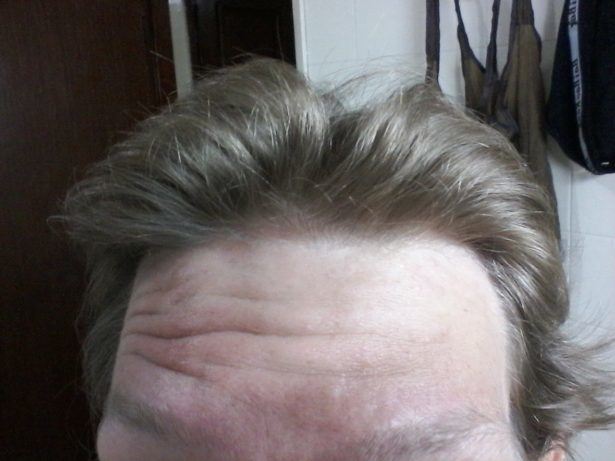Consumption Of THC Gummies For Migraine
Migraine headaches are a relatively common ailment, but they can make life incredibly difficult for individuals who suffer from them. When a migraine strikes, it can be challenging to function in daily life due to pounding headaches, nausea and vomiting, hypersensitivity to sound and light, and even vision changes such as flashes of light or blind spots. Migraines are so incapacitating that they are the second biggest cause of disability in those under 50.
Migraines are hard to deal with and much more challenging to treat. There are a variety of prescription treatments available to aid people with migraines, but they’re sometimes ineffective or have side effects that aren’t much better than the migraine itself. Managing migraines is possible with a combination of medication and self-care techniques. Reducing the frequency and intensity of episodes can be as simple as making lifestyle adjustments and avoiding triggers. The severity of attacks, related symptoms, and other health concerns influence the medications used to manage symptoms. When first-line drugs have failed to provide adequate symptom management, medicinal cannabis may be considered. That’s why THC and migraines are becoming more popular.
Even though multiple FDA-approved medicines are available, doctors claim that many patients turn to cannabis products containing THC and CBD, a non-psychoactive component of cannabis, to cure their migraines. THC products, including vapes, tinctures, and even THC edibles, may be an over-the-counter migraine treatment option. According to some studies, it may help relieve migraine symptoms or prevent them from occurring. However, most studies haven’t found conclusive evidence of this. Even for medical reasons, buying, growing, owning, or using cannabis is illegal in several places. Before you do it, make sure you understand the laws in your state.
THC Gummies have been demonstrated to be helpful in the treatment of symptom management illnesses such as cancer, chronic pain, headaches, migraines, and psychological disorders in the past. There have been anecdotal tales of migraine sufferers using THC gummies, but recent research has corroborated this. One hundred twenty-one patients with regular migraine headaches took THC every day to avoid attacks in research at the University of Colorado. About 40% of them reported that the number of migraine headaches they had each month had decreased by half. Lately, a small amount of study suggests THC gummies and migraines may have a favorable relationship.
How Do THC Gummies Help In Migraine?
A network of cannabinoid receptors exists in your brain and other regions of your body. These are protein loops that influence how you perceive pain. Marijuana contains natural chemicals such as THC. These enter your body and search for receptors when you use them. They alter the function of receptors and may reduce pain signals. THC may also aid in treating nausea, anxiety, muscle spasms, and other ailments. The cannabinoid THC is the one that gets the most attention in marijuana. It’s what makes you feel euphoric or euphoric.
The main ingredients in medical cannabis preparations are THC and CBD. The endocannabinoid system, which is made up of CBD and THC, stimulates cannabinoid (CB) receptors all over the body (ECS). CB1 (central/peripheral nervous system) and CB2 (peripheral/immune tissues) receptors are the endocannabinoid system. Anandamide (AEA) supports therapeutic efficacy in acute and preventative migraine treatment by potentiating 5-HT1A and inhibiting 5-HT2A receptors; it is active in the periaqueductal gray matter, a migraine generator. THC also has anti-inflammatory and dopamine-blocking properties.
This study suggests that THC may influence the activity of the trigeminovascular system, a critical component of migraine pathophysiology. Chronic migraine headaches are associated with low ECS function as well. Compared to those without headache disorders, AEA levels in CSF fluid were significantly lower in people with chronic migraine, probable migraine, or medication-overuse headache. It could indicate a failure of the ECS to suppress activation of the trigeminovascular system. The effects of the ECS on pain perception and transmission, neurotransmitter release, dural blood vessel dilatation, and inflammation could all have a role in migraine modulation.
Study results showed that THC medications provided 75.82 percent relief on average, while non-THC treatments only provided 51.01 percent comfort. THC was rated as a far more successful treatment even when only looking at the scores of individuals who used both types of therapies. THC has been linked to a slew of non-psychoactive health advantages, including:
- Better sleep
- Stress reduction
- Relief from chronic pain
- Less inflammation
The edible THC gummies may also help you relax. That’s good news for migraine sufferers who suffer from stress-induced migraines. THC is even referred to as a “promising choice” for migraine-related joint pain and muscle soreness.
What Are The Common Risks Associated?
When you consume THC, you may experience dizziness, weakness, disorientation, fatigue, or moodiness. Regular consumption may lead to addiction and other problems. There is no evidence that short-term consumption is harmful.
Legality
The researchers feel their findings are significant and could serve as a springboard for states to legalize THC for migraine treatment. In the United States, THC is allowed in more than half of the states. However, there are different rules about how you can buy it and how much you can have in each state. Even if you have a medical ailment that it could help with, it’s still prohibited in certain states. While there are promising results for THC and migraines, researchers are keen to remind us that marijuana THC can also have detrimental side effects. Even when THC offers advantages, it may also have disadvantages worth considering.
Takeaway
Starting with the THC dosage of 1 to 2.5 mg of THC gummies are an excellent source to relieve stress. For most patients with excess effects, going up to 5 mg will still provide a clinical benefit; once you reach 10 mg, it will produce common adverse symptoms for most, and 15 mg or above can bring psychiatric issues.
In trials, mental fogginess, dry mouth or eyes, nausea, vomiting, and mania were all noted as side effects of the medication. Altogether, both prolonged- and short-term impacts of medical cannabis have been recorded, with the treatment being linked to a reduction in daily painkiller use, dependency, and migraine pain intensity. Migraineurs reported more beneficial impacts than adverse effects.
Discover more from Don't Stop Living
Subscribe to get the latest posts to your email.

